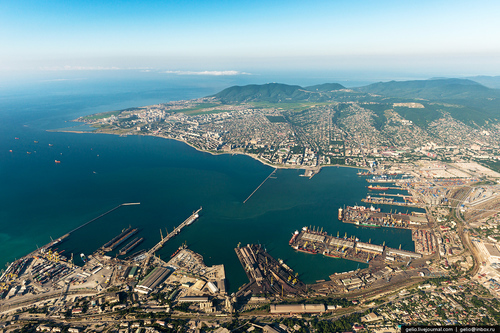ÐÎÑÑÈÉÑÊÈÉ ÏÐÎÔÅÑÑÈÎÍÀËÜÍÛÉ ÑÎÞÇ ÌÎÐßÊÎÂ
SEAFARERS' UNION OF RUSSIA
A NON-UNIONIZED SEAFARER
IS AN UNPROTECTED SEAFARER
Back
The pandemic helps the shipowners to avoid interaction with trade unions

During the pandemic, the seafarers found themselves in a difficult situation as they experience problems not only with the shift, but also with shore leave and even with access to medical care. In different ports of Russia the situation is also not uniform.
So, according to the Chairman of the Black and Azov Seas Territorial Organization of the SUR Aleksey Belyakov, in the port of Novorossiysk the crew change is possible only for citizens of the Russian Federation. The ITF inspector in Novorossiysk, Olga Ananina, said that there are also difficulties with doctors visit on board to help crewmembers.
At the same time, the requirements for compliance with any quarantine measures after the voyage or before it are not advised to Russian seafarers. If seafarers has symptoms of COVID-19 on board or while sign on/ sign off from the ship, appropriate treatment is provided in medical institutions.
However, some shipowners may apply their own requirements to the crews when changing. For example, as Olga Ananina said, one of the companies required that the relievers stay in a hotel for two days, and then they were taken to the border control by two. In addition, it is mandatory for seafarers to pass tests for coronavirus while signing on and to signing off.
In most Russian ports crewmembers are also not allowed to go ashore. «As we can see, most of the countries today are closed for the crew change. Although the seafarers say that this situation is not everywhere. For example, one executive officer told me that this summer the crew of his ship managed to go ashore in Texas, USA. In social networks they write that in the ports of Holland shore leave is also allowed. The same is said about South America, but the crime rate in the country is high, and I would not recommend going ashore there. However, in Asia, Eastern countries, shore leave is strictly prohibited»,- said Aleksey Belyakov.
Crewmembers also find it harder to find work during the pandemic. The problem, according to Belyakov, is not only with the crew changes, but also that the time for submitting some documents in our country has increased dramatically. «I will give an example related to Maritime administration of the port of Novorossiysk. You need to take a queue and wait 2 months in order to sign up for the delivery of Seafarer’s Identity Document. When you managed to submit all required documents, you need to wait for another two weeks in order to get SID. The situation with diplomas is exactly the same. »
Meanwhile, according to the Chairman of the Azov-Don Territorial Organization of the SUR Leonid Glushak, in the ports of Azov, Rostov-on-Don, Taganrog, crew shifts are performed in normal course. The repatriation of foreigners is also being carried out. In particular, in November, Azerbaijani seafarers from the m/v River Rain applied to the organization for assistance in discharging in Rostov-on-Don. After contacting the ship's agent and the company, the issue was resolved within a day. However, this is still not a very common practice. In the Murmansk region today, according to the Chairman of the Arctic Territorial Organization of the SUR Petr Klindukhov, change of crew is possible with the PCR test with negative results or test for antibodies (IgG) with a positive result. The results must be received no earlier than three days before their arrival on board the vessel.
All organizations engaged in the change of ships ' crews, should get approval for arriving of such workers to the region with the Working group of the Interdepartmental operational headquarters not less than 5 working days before the intended date of arrival. Date, place of arrival, number of workers, place of residence, travel itinerary, arrangements and procedures and their place of residence on the territory of the region must be indicated. According to Klindukhov, the organization has received complaints from seafarers about the ban to shore leave several months ago. He said that much in this matter depends on the internal regulations of the stevedores. The main problem for all these ports is that union inspectors experience difficulties with the access to the ships. As Olga Ananina notes, most often this is not related to port bans, but is related to the orders of shipowners. For reasons of crew safety, they often forbid the crew to allow union representatives on board. While some of them may be doing this with the best of intentions, it is also a good reason for irresponsible employers, who can now avoid interacting with unions without any problems or consequences.
Here is what Leonid Glushak said about the situation in the ports of the Sea of Azov: «Inspectors are allowed to board the ship only under certain conditions. For example, upon the complaint of seafarers, or if there is a threat to their life and safety. Routine inspections are now prohibited.”
This state of affairs, of course, makes it difficult to help seafarers and obstruct the work of union’s inspectors as it’s impossible to recognize whether there are serious problems on board the ship.
Up
